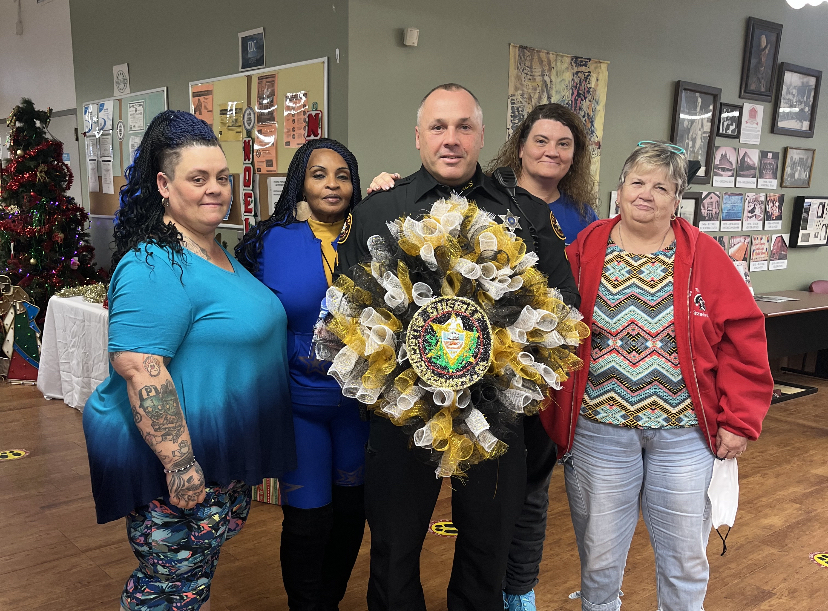By Gina Mazza
The residents of Allegheny County are fortunate to have an excellent system of proactive, community-oriented law enforcement with a dedicated staff. At the top of that list is Deputy Sheriff Jason Tarap, who is passionate about keeping everyone safe—especially children and older adults.
Crime Prevention Programs
The following programs are offered on an ongoing basis and are specifically good for older adults to know about:
- Apartment Security: This program explores ways to make your apartment safer, including affordable suggestions for door and window security, proper lighting, placement of smoke detectors, how to shop for alarm systems, and more.
- Auto Theft Prevention: A car is stolen every 33 seconds in the United States. In many cases, car theft could have been avoided if the proper precautions had been taken. This program explores ways to help prevent car theft.
- Carjack Prevention: This program promotes ideas on how to reduce the risk of being carjacked.
- Child Identification Program: Designed to provide vital information to the guardians of children (including grandparents) and law enforcement agencies in the event that a child is reported missing or abducted, or for identification purposes.
- Cons and Frauds: How to Avoid Becoming a Victim of a Scam: This program… only for children?
- Crime Prevention for the Physically Challenged: This program instructs disabled people to feel less vulnerable when faced with a would-be assailant, including how to stay alert and tuned into one’s surroundings. It also explores ways to make homes safe from intruders, tips on how to plan ahead before going on vacation, and using public transportation.
- Firearms Safety: This program educated adults about firearms safety rules, firearms for personal security, children and firearms, safe storage, theft prevention, firearms licensing, and the consequences of misuse of a firearm. The course stresses that safety is an attitude that must constantly be practiced and reinforced.
- Identity Theft: This presentation provides the actions recommended by law enforcement and the financial industry to help reduce the likelihood of becoming a victim of identity theft.
- Internet Safety: While the Internet is an enjoyable source of information, shopping, and entertainment, it has hid- den hazards. This presentation teaches how to surf online safely.
- Neighborhood Crime Watch and Block Watch: This is designed to enhance neighborhood security and heighten community cooperation to encourage mutual assistance and concern among neighbors and their police departments. Training includes drug education, reporting emergencies, effective property security, information gathering for police, identifying cons and fraud tactics, and more.
- Security Surveys: This program illustrates the options available to make your home, apartment or business a safer place to live or work. The questionnaire asks for and provides important crime prevention tips.
- Senior Safety: This program helps empower seniors to take a closer look at their lifestyles and become aware of how they can lessen their chances of becoming a victim of a crime. Topics include being alert when out and about, making sure your home is safe and secure, watching out for con artists, and getting involved with the community. This course can be adapted to fit any particular need of any senior group.
- Seat Belt Safety: This presentation teaches the proper usage of seatbelts and the laws pertaining to seatbelts.
- Home and Business Security: This program explores ways to make your home or workplace a safer place. Low-cost, affordable suggestions are given on door and window security, proper lighting, safety hazards, placement of smoke detectors, and general information on how to shop for alarm systems. While the above programs are the ones that the Sheriff’s Office makes available to all residents, they also take requests for programming based on the specific needs of any group or community. “If you are a program director at a senior high rise or community center and have a specific issue that you’d like us to address, we can do that,” Deputy Sheriff Tarap comments. “We go wherever anyone needs us.” Most programs are an hour in length. Feel free to write or call the Allegheny County Sheriff’s Office (see below) to offer your ideas and suggestions.
The Allegheny County Sheriff’s Office is continually adding and updating its programs to meet the needs of county residents. To learn more or to schedule a program for your group or community, send a letter of request to Sheriff Kevin M. Kraus, Allegheny County Sheriff’s Office, Crime Prevention Division, 436 Grant Street, Courthouse Room 111, Pittsburgh, PA 15219; or call (412) 350-3200 or visit sheriffalleghenycounty.com.

